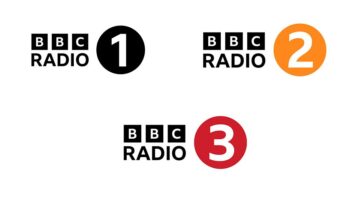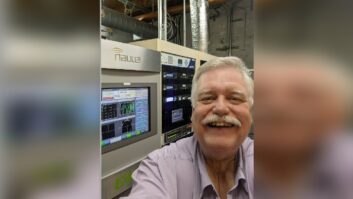When it comes to DAB in the United Kingdom, the BBC is a committed supporter. In addition to making its established networks available on DAB, “the BBC has invested in DAB through creating a number of digital-only stations such as BBC Radio 1Xtra and BBC Radio 7, offering a wider choice of output to listeners,” said Talia Hull, its strategic communications manager for audio & music.
“The BBC’s DAB broadcasts are enhanced by additional data services delivered to screens on DAB radios, such as EPGs, news headlines, ‘now playing’ and other information.”
At the same time, the Beeb is pushing aggressively into other digital distribution media. “The BBC supports the idea of a mixed ecology of digital technologies to deliver radio programming,” Hull said. “This includes DAB, online streaming (encompassing Wi-Fi and 3G streaming to mobile devices) and digital television.”
Where audience is
This model is in line with that of a growing number of broadcasters: Rather than placing all their eggs in one digital basket — be it DAB, mobile or online — the strategy is to distribute content on every available medium to maximize reach and potential audience.
The strategy conforms to the reality of U.K. digital radio listener, based on data from research and ratings agency RAJAR.
“According to RAJAR (Q1/2010), more than 38 percent of U.K. adults (15+) tune into radio digitally each week, with DAB currently the most popular digital platform,” said Hull. “That is followed by DTV, with online streaming the third most popular.
“DAB ownership in the U.K. is growing strongly,” she added. “According to RAJAR, 34.5 percent of adults live in a home with a DAB set. The BBC is continuing to build out its DAB coverage, and this will reach 90 percent of the United Kingdom by mid-2011.”
To spur this growth, the BBC, Digital Radio UK, British commercial broadcasters and receiver manufacturers/vendors promoted and backed a “Radio Amnesty” program in which people who handed in old analog receivers to retailers got discounts on DAB sets made by Alba, Bush, MagicBox, Philips, Proline, PURE, Roberts and Sony. (The analog radios were refurbished and donated to the Children’s Radio Foundation in South Africa.)
“This is the first time that on-air trails running across both BBC and commercial radio have been developed,” said Hull. “We will be working with the DRUK to develop further campaigns over the next 18 months.”
As for mobile handsets? “Development in streaming to mobile devices has seen significant growth in the past year in the United Kingdom, and the BBC’s network radio services are now available via mobile. As of last month, mobile users with Internet connectivity can now listen live on pretty much any phone to all of the BBC’s national radio networks directly via our mobile Web pages.”
In addition to its live streams to mobile, the BBC has revamped its websites so that they work on mobile browsers. It has developed a number of apps to provide direct one-touch service for iPhones and similar devices. At press time, these were on hold pending review by the trustees who monitor the BBC’s expenditures on the public’s behalf.
Cannibalization or maximization?
Could supporting so many media result in online cannibalizing some of DAB’s audience, and vice versa?
According to Talia Hull, the “more media” approach does work; right down to including long-wave, medium-wave and FM as part of its overall reach.
“We’re learning is that whilst every platform (digital or analog) has its advantages and disadvantages, when they work together the combined offer is superb. DAB remains a true free-to-air broadcast technology where a single transmitter can serve hundreds of thousands, if not millions of people in an extremely robust and cost-effective way. Meanwhile, online streaming supports enhancements to programs and a crucial back channel allowing audiences to interact in a much more sophisticated and instant way that used to be the case.”
As for the future and the planned 2015 analog switch-off date, Hull said the BBC is progressing apace.
“After a period of uncertainty in the U.K. radio industry, both the BBC and its commercial sector partners have agreed on a plan for migration to digital that will provide a sustainable mix of technologies.
“The ratio of consumption by DAB, online and mobile and by DTV may vary over time, but the core message is that no single digital platform can meet the evolving needs of today’s and tomorrow’s audiences — different platforms will meet the user’s needs, depending on the circumstances.��










